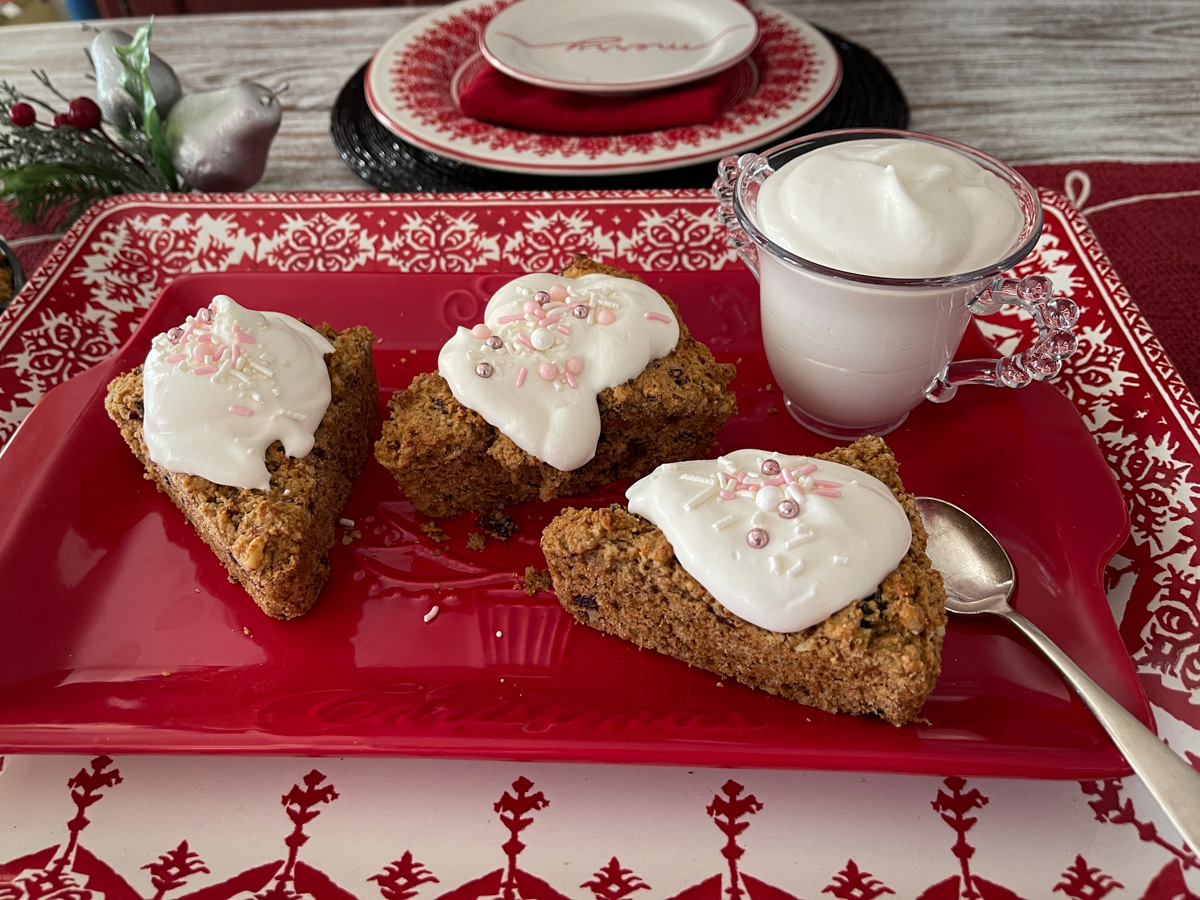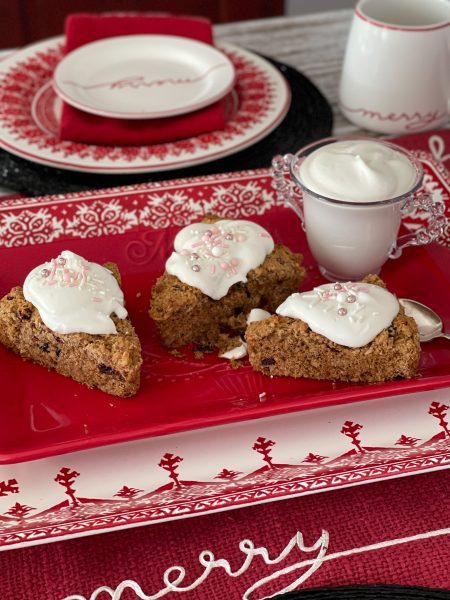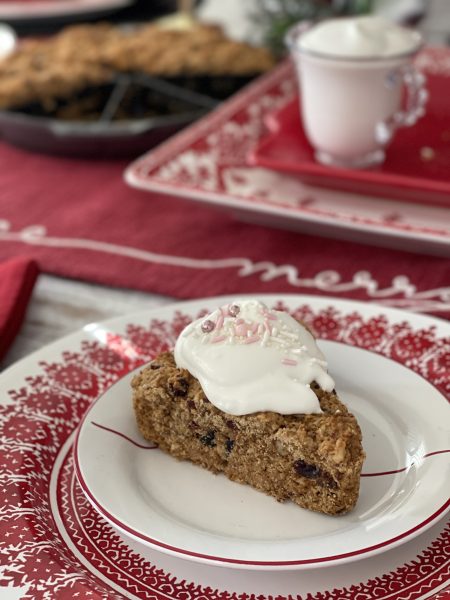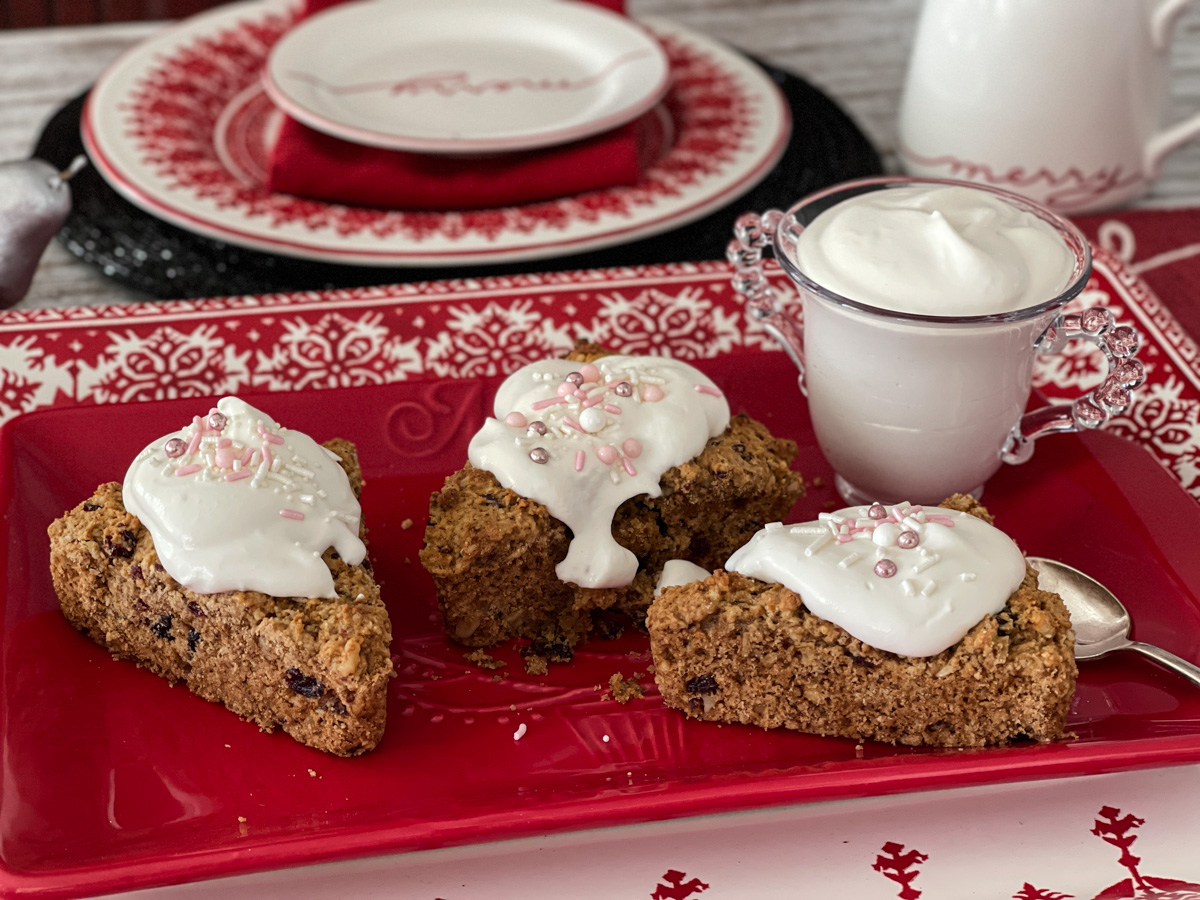
I Fed My Microbes on Christmas Day
Christmas Morning
Food For My Microbes

I like treats like everybody else, but I usually make them so I add better ingredients. I also take into consideration what my microbes like to eat. So what do my personal microbes like to eat? Prebiotics, which are mostly fiber. My microbes love them, and they add virtually no calories; but my microbes take this fiber, digest it, and make more microbes in my body that grow by leaps and bounds. Overall, the best way to stay healthy is by feeding those microbes. The bacteria living inside are essential to your immune system. Your gut is host to thousands of bacteria species in a complex ecosystem. It's like a vast rainforest thriving and organizing every day of your life - and yes doing its thing on Christmas morning - regardless of the day.
Foods that microbes love
Here are some of the foods microbes love, and the first one is oats! A substance in the oats, known as beta-glucan, helps these microbes to grow and multiply.1 One study done on whole grains (including oats) followed more than 100,000 people who were questioned on what they ate each day. The researchers saw that every one-ounce serving of whole grains (oats or porridge) reduced a person's overall risk of an early death by five percent, and their risk of death from heart disease by nine percent. Published online Jan. 5, 2015, in JAMA Internal Medicine, they stated, "We saw clear evidence that the more whole grain intake, the lower the mortality rate is," said Dr. Qi Sun, an assistant professor of nutrition at the Harvard School of Public Health. "When we looked at risk of death from heart disease, there was an even stronger association."
For many years, the FDA has allowed a health claim for oat products stating: "There is scientific agreement soluble fiber from oat products when added to a low-saturated fat, low-cholesterol diet may help reduce the risk of heart disease." Oats will feed your microbes and make them grow so they can help you with a myriad of health benefits.
Microbes eat cholesterol
Feed those microbes because they're the ones that can break down these soluble fibers and use them to create more microbes that prevent disease. Did you know that certain microbes eat cholesterol, thereby lowering it throughout the body? Good bacteria consume (soluble) fiber in the small intestines and create acids, one of which is called proprionic acid. This particular acid reduces production of cholesterol by the liver. Another way good microbes bring down cholesterol levels is that as bacteria grow in the intestinal tract, they consume some of the cholesterol in the intestines, incorporating it into their own cells. This means the cholesterol becomes unavailable for absorption from the intestinal tract into the bloodstream, naturally lowering total cholesterol.
Pecans
Pecans are another wonderful fiber food for your microbes. Pecans contain heart-healthy monounsaturated fats like oleic acid.2 One study, published in the August 2006 issue of Nutrition Research, found that pecans may help prevent coronary heart disease by inhibiting unwanted oxidation of blood lipids.3 Another study done at Loma Linda University (LLU) and issued in the January 2011 issue of The Journal of Nutrition found many similar results.
Kefir and yogurt have the microbes you need
Kefir and yogurt do feed your microbes, but they are also the microbes that will inhabit you. Eating prebiotic foods and topping it with my yummy cultured topping is the perfect breakfast for your inner world of vast and varied microbes. It's fun and delicious, and your house smells like Christmas while your microbes have a party all their own keeping you well each and every day! It's important to feed your microbes — even on Christmas Day. God Bless them, every one -
 Check out the recipe!
Check out the recipe!
Cultured Cranberry Scones
Ingredients
- 2 cups Einkorn All-Purpose Flour - or sprouted flour
- 1 cup rolled oats, old-fashioned or quick-cooking
- ⅔ cup coconut sugar - or allulose for sugar free
- 1 tablespoon baking powder
- ½ teaspoon baking soda
- ½ teaspoon Celtic Sea Salt
- 8 tablespoons chilled butter - cut into pieces
- 1 cup dried cranberries
- ¾ cup Kefir - or any yogurt
- 1 cup pecans - or walnuts
- 1 cup Whipped Cultured Topping
- sprinkles - optional
Every ingredient with a link was selected by me to make it easier for you. I may receive a small affiliate commission if you buy something through my links. Thank you! ❤️
Instructions
- Preheat oven to 375°F.
- Combine flour, oats, sugar, baking powder, baking soda, and salt in a medium-size bowl.
- Cut in butter with a pastry blender, or two forks. until the flour looks crumbly.
- Add cranberries, nuts, and kefir to dry ingredients and mix just until moistened. The mixture will be very sticky.
- Turn onto a floured surface and knead 4 to 5 times with floured hands.
- Pat out dough to ½-inch thick and cut into triangles or spoon into a greased scone pan. See note*
- Bake for 20 minutes or until they're just beginning to brown. A toothpick inserted into the center of one should come out clean, or perhaps with a few moist crumbs clinging to it.
- Let cool on a wired rack before adding the whipped cultured cream topping. Add a few sprinkles for a festive touch.
Notes
Are you on the list?
Sign up today and I'll send you my free Getting Started Guide!
Each week I'll send you updates, tips, recipes, and more! You might even be a winner of my weekly giveaway! (starter cultures, memberships, and more!)
Come be a part of my cultured food family!






